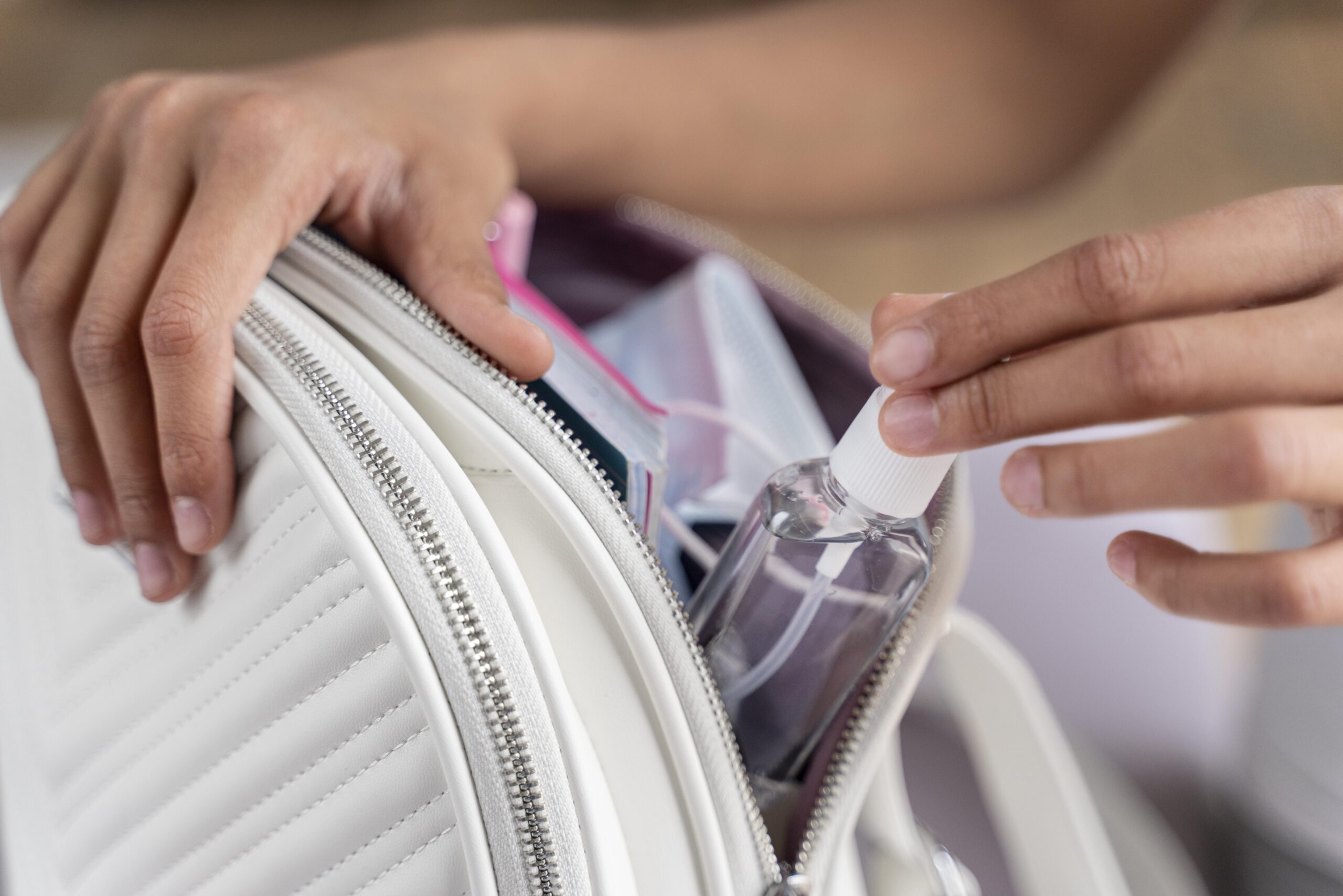Why Zipper Coatings and Finishes Matter
In the world of engineered products, performance depends on every component working as designed. For OEMs manufacturing outdoor gear, marine covers, PPE, or industrial enclosures, the zipper often determines whether a product holds up—or fails—under stress. When coatings corrode or finishes flake, the entire product can be compromised, leading to warranty claims, failures, and lost customer trust.
That’s why zipper coatings and industrial finishes are critical to long-term performance. They protect metal, molded plastic, and textile components from corrosion, UV damage, and abrasion. At LenZip, a U.S.-owned zipper manufacturer, advanced coating technology and tight quality control ensure that every closure is engineered to exceed durability, compliance, and operational requirements across industries.
The Science Behind Zipper Coatings and Finishes
Zipper coatings and finishes are surface treatments that improve resistance to corrosion, friction, and wear. These processes—ranging from electroplating and anodizing to polymer and chemical treatments—extend zipper life in harsh conditions.
Types of Zipper Coatings
Electroplating:
Nickel, zinc, or brass electroplating adds a micro-thin metallic layer to improve corrosion resistance and uniform appearance. Zinc finishes provide sacrificial protection, while nickel improves hardness and wear resistance.
Anodizing:
Used primarily for aluminum zippers, anodizing creates a dense oxide layer that resists corrosion and supports dye adhesion for long-lasting color and surface stability.
Powder & Polymer Coatings:
Thermoplastic and resin coatings protect molded and coil zippers from chemical exposure, friction, and UV degradation. They reduce operational drag and add customizable color finishes.
Chemical Sealants:
Fluoropolymers, anti-oxidation, or hydrophobic coatings prevent moisture absorption and oil contamination, ideal for PPE, outdoor, and chemical-resistant zippers.
These coating systems transform ordinary components into industrial-grade closures capable of thousands of open-close cycles while maintaining appearance and functionality.

Environmental Threats and How Coatings Prevent Failure
Harsh environments put zippers to the test. Each threat demands specialized surface treatment to prevent degradation.
Corrosion & Rust:
Marine and industrial zippers are exposed to salt, humidity, and chemicals that corrode untreated metals. Anti-corrosion coatings—zinc, brass, or polymer overlays—block oxidation and maintain flexibility in high-salt or high-moisture environments.
UV Degradation:
UV light degrades plastics and fabrics, leading to fading and brittleness. UV-resistant zippers use stabilized dyes, coated teeth, and treated tapes to ensure long-term outdoor durability.
Chemical Exposure:
Industrial workwear and PPE face exposure to oils, acids, and solvents. Chemical-resistant coatings like fluoropolymers or engineered resins provide an inert barrier that protects both slider and tape.
Abrasion & Friction:
In automotive, tactical, and industrial use, constant motion wears down slider contact points. Hard nickel and polymer coatings reduce friction, preventing “tooth jump” and slider lock-up.
Heat & Flame:
Protective clothing and firefighting gear require flame-retardant zipper coatings that resist melting and self-extinguish under high heat, compliant with NFPA 2112 and ASTM D2061 standards.

Industry Applications: Where Coatings Make the Difference
Zipper coatings and finishes are mission-critical in multiple industries:
- Marine: Anti-corrosion and UV-stable zippers for boat covers and enclosures resist salt spray and fading.
- PPE & Fire Gear: Flame-resistant zippers maintain function under direct heat exposure and meet NFPA standards.
- Outdoor Gear: UV- and water-resistant coatings keep tent and backpack zippers reliable during long-term use.
- Automotive & Industrial: Abrasion-resistant and self-lubricating finishes ensure smooth operation and prevent premature failure in high-friction environments.
- Chemical & Manufacturing Enclosures: Polymer coatings protect zippers against solvents, grease, and cleaning chemicals for extended service life.
Zipper Testing Standards and Quality Control
To guarantee real-world reliability, LenZip performs both in-house and third-party testing against global benchmarks.
Key Testing Standards
- ASTM D2061: Tests zipper tensile, fatigue, and abrasion resistance, ensuring coatings don’t flake or weaken under stress.
- NFPA 2112: Validates flame resistance, after-flame duration, and melt performance for fire-rated zippers.
- MIL-SPEC: Confirms coating adhesion, corrosion protection, and non-reflectivity for military and tactical zippers.
These tests simulate years of use—salt spray, heat, UV, and abrasion—to confirm zipper finishes meet the demands of real-world conditions.
LenZip’s Custom Coating Capabilities
LenZip’s Illinois-based manufacturing integrates coating, assembly, and testing under one roof—delivering unmatched precision, fast turnaround, and traceable quality control.
Custom Coating Options:
- Anti-corrosion finishes (zinc, brass, and hybrid coatings)
- UV- and flame-resistant surface treatments
- Wear-resistant and smooth-operation finishes for high-cycle products
LenZip engineers coatings for marine zippers, tactical packs, fire gear, automotive interiors, and industrial covers—all tested to ASTM, NFPA, and MIL-SPEC performance standards.
For more, visit LenZip’s Products page or request a custom quote to design a coating system tailored to your environment.
Conclusion
Zipper coatings and finishes aren’t decorative—they’re the invisible armor behind every reliable product. For manufacturers, engineers, and OEMs, investing in the right coating technology ensures longevity, safety, and compliance across all applications.
Partner with LenZip, a U.S.-owned zipper manufacturer, for custom-engineered coatings and finishes that stand up to corrosion, UV, abrasion, and heat. Visit the LenZip homepage, explore Zipper Testing Standards, or request a quote today to experience the science behind zipper durability.
Strong products begin with strong closures—tested, certified, and U.S.-made.
FAQ
Q1. What are zipper coatings and why are they important?
Zipper coatings protect metal or plastic components from corrosion, UV, and abrasion, extending product life and maintaining appearance.
Q2. Which industries benefit most from advanced zipper coatings?
Marine, PPE, outdoor, automotive, and industrial applications all depend on coated zippers to withstand environmental exposure and high use.
Q3. What standards verify zipper coating performance?
ASTM D2061, NFPA 2112, and MIL-SPEC tests measure corrosion, flame, and fatigue resistance for certified zipper durability.
Q4. Can coatings be customized for specific environments?
Yes. LenZip develops anti-corrosion, flame-resistant, UV-stable, or self-lubricating coatings tailored to OEM specifications.
Q5. Why choose a U.S. zipper manufacturer like LenZip?
U.S. manufacturing ensures faster lead times, strict quality control, and complete traceability from coating through final assembly.
